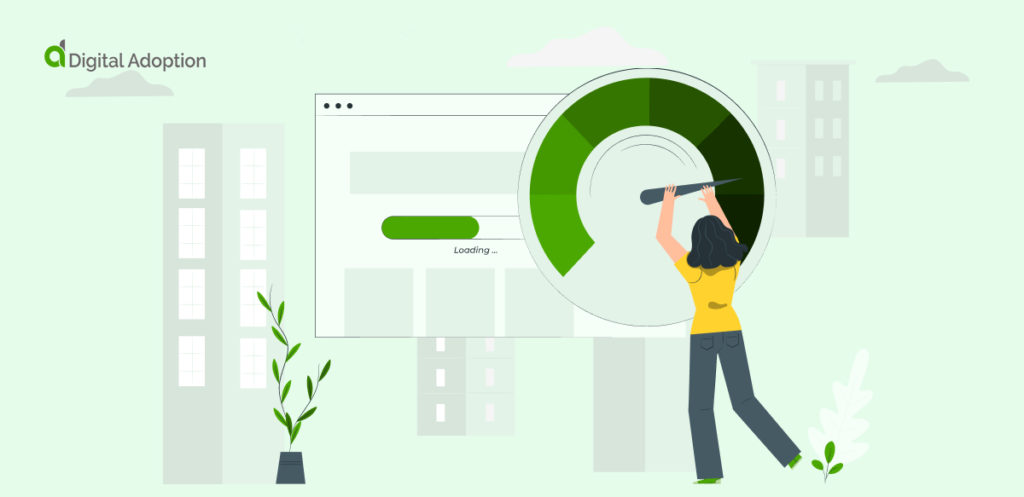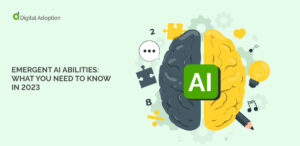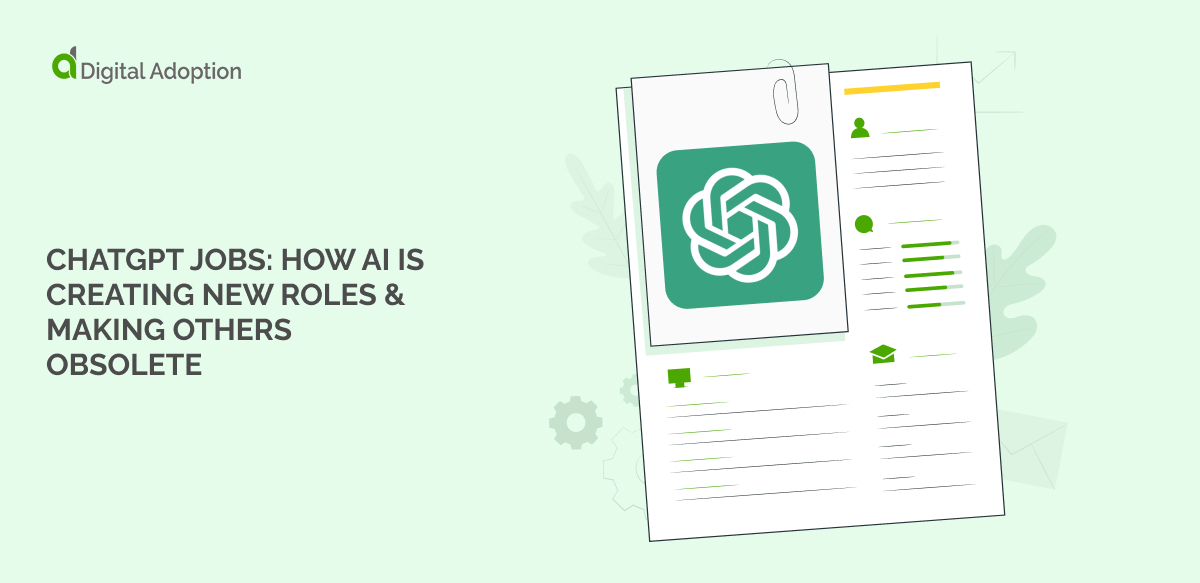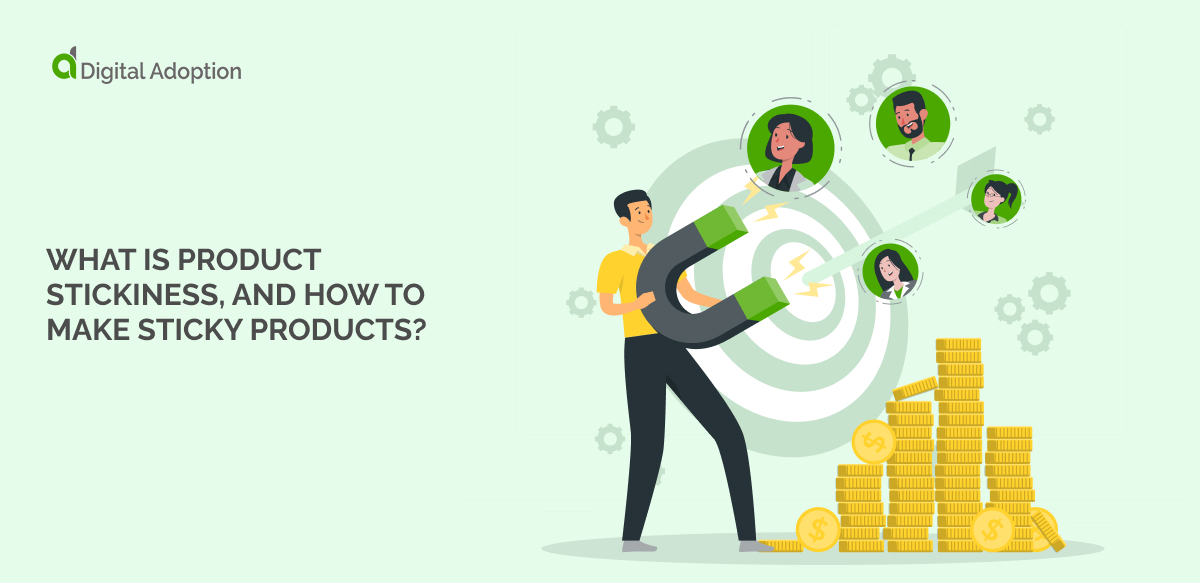Today’s business landscape is proving steadily conducive to innovations of digital transformation, and many organizations are seeking to adopt new technologies that help them outmaneuver the competition and increase their bottom line, I.e., the Internet of Things (IoT).
The Internet of Things (IoT) serves as a core component for accelerating business digital transformation initiatives and driving innovation across various global industries, including manufacturing, finance, healthcare, aviation, and government sectors. Through the deployment of an interconnected smart network of operational technologies, businesses have fast-tracked better routes to improve productivity and operational efficiency.
Businesses aiming to disrupt critical business processes with the implementation of digital transformation technologies should be aware of the full potential that a network of IoT can provide. Statista reports that the number of IoT devices globally is forecast to almost triple from 9.7 billion in 2020 to more than 29 billion devices in 2030.
Benefits Of Implementing IoT As Part Of A Wider Business Digital Transformation Initiative
According to a Microsoft report, “90 percent of decision makers now believe IoT is critical to their company’s success.” It should then come at no surprise that there are various benefits of implementing IoT as part of a wider organizational digital transformation strategy, advantages of which include:
- Improved decision-making: Businesses can gain valuable insights into their operations by collecting and analyzing data from various devices and sensors. This data can be used to make better decisions about optimizing customer discovery processes and improving customer experiences.
- Enhanced customer experiences: IoT can collect data about customer behavior and preferences. This data can then be used to customize products and services to meet the specific needs of individual customers.
- Increased efficiency and productivity: IoT can help businesses automate tasks and processes. This can free employees to focus on more strategic tasks, resulting in increased efficiency and productivity.
- Reduced costs: Implementing IoT can help businesses save money by reducing waste, increasing efficiency, and improving asset utilization.
Digital transformation is essential for businesses that want to stay competitive in today’s market. IoT can play a significant role in helping companies adjust to this transformation.
How Does The IoT Enhance Digital Transformation?
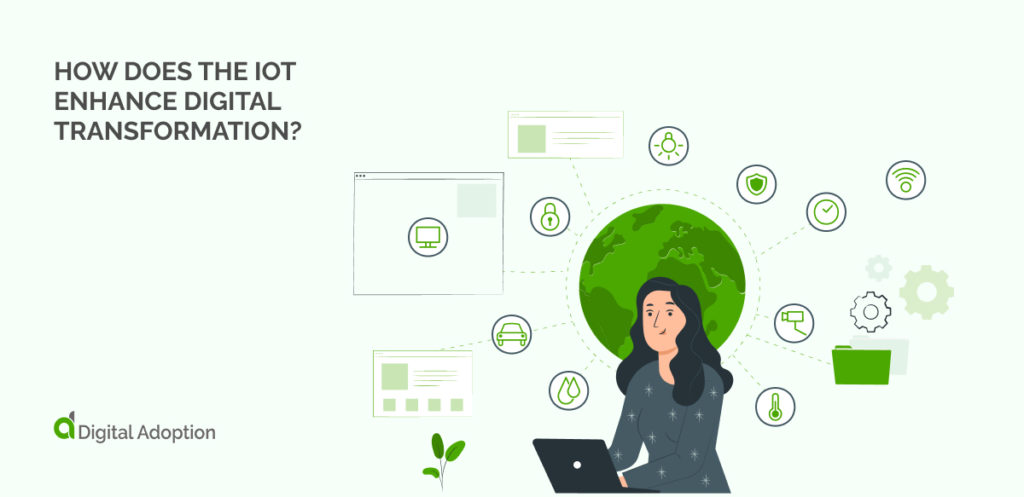
There are numerous ways in which the IoT can help to accelerate enterprise digital transformation. IoT devices generate large volumes of data that can be collected and analyzed to provide valuable insights into business operations. These data-driven insights can improve decision-making, optimize processes and enhance customer service.
IoT-enabled businesses can save costs by reducing waste, increasing asset utilization, and improving energy efficiency. The consensus around digital transformation research suggests that implementing a smart network of connected devices is pivotal for future business proficiency and will help to further drive the adoption of digital operational processes—which enriches the entire business model.
The IoT is playing an increasingly important role in digital transformation as businesses look to adopt new technologies to stay competitive. In order to fully realize the benefits of IoT, businesses need to partner with an experienced provider that can help them smoothly navigate the digital adoption of computer-physical smart machines.
Connecting devices can even help with supply chain management and enable IoT solutions to communicate properly to ensure visibility and effectiveness across the entire supply chain. This is the end goal for many organizations that want to optimize their operations and take advantage of analytics software and customer data.
Why Organizations Are Using IoT For Digital Transformation
In order to maintain marketplace perpetuity, organizations must deploy innovative methods for detecting new business opportunities and upgrading operational models. IoT enables digital transformation through the provision of digital environments that give businesses an optimal operational vantage point.
IoT and other phygital devices work using an array of software, sensors, and interoperable networks that culminate in a responsive digital apparatus. This digital apparatus (or user interface) compiles data to give businesses invaluable analytical insight into critical systems and processes.
IoT networks provide operational clarity on a granular scale, allowing employees to identify redundant processes and remedy them accordingly. This allows employees to optimize their workload and better prioritize pertinent tasks. Moreover, businesses with IoT-enabled infrastructure save money by reducing waste, increasing asset utilization, and improving energy efficiency.
How the IoT Is Transforming The Digital Landscape
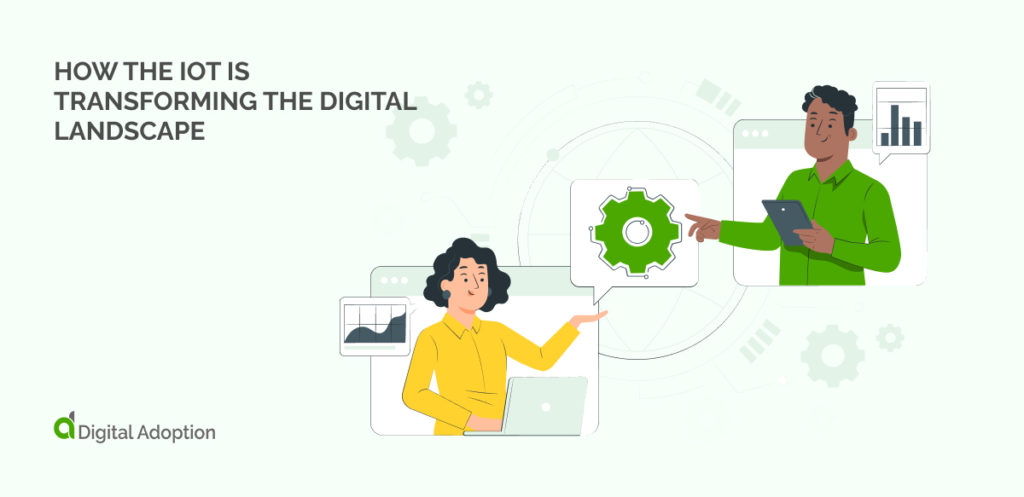
The IoT profoundly impacts the digital landscape as businesses increasingly adopt IoT technologies to stay competitive. IoT can help businesses collect and analyze data more effectively, optimize operations, and improve customer experiences.
IoT devices generate large volumes of data that can be collected and analyzed to provide valuable insights into business operations. This data can be used to make better decisions about optimizing processes and improving customer engagement.
In addition, connecting devices can help with supply chain management and enable IoT solutions to communicate properly to ensure visibility and effectiveness across the entire supply chain. This is the end goal for many organizations that want to optimize their operations and take advantage of data analytics.
Challenges With IoT Transformations & How To Overcome Them
Digital transformation is a process of change that enables organizations to use new technologies to improve their performance. IoT can be a powerful tool for digital transformation, but it also presents some challenges.
One of the biggest challenges is integrating IoT into existing systems and business processes. This can be difficult and time-consuming, particularly for larger organizations. Another challenge is data security. As businesses collect and store more data, they become more vulnerable to cyberattacks.
To overcome these challenges, businesses need to partner with an experienced provider that can help them smoothly navigate the digital transformation process. They also need to ensure they have strong data security measures to protect their data from attacks.
The IoT is transforming the digital landscape, and organizations need to adopt IoT technologies to stay competitive. However, there are some challenges with IoT transformations that businesses need to be aware of. By partnering with an experienced provider and taking measures to protect their data, businesses can overcome these challenges and reap the benefits of IoT.
3 Ways IoT Is Transforming Business
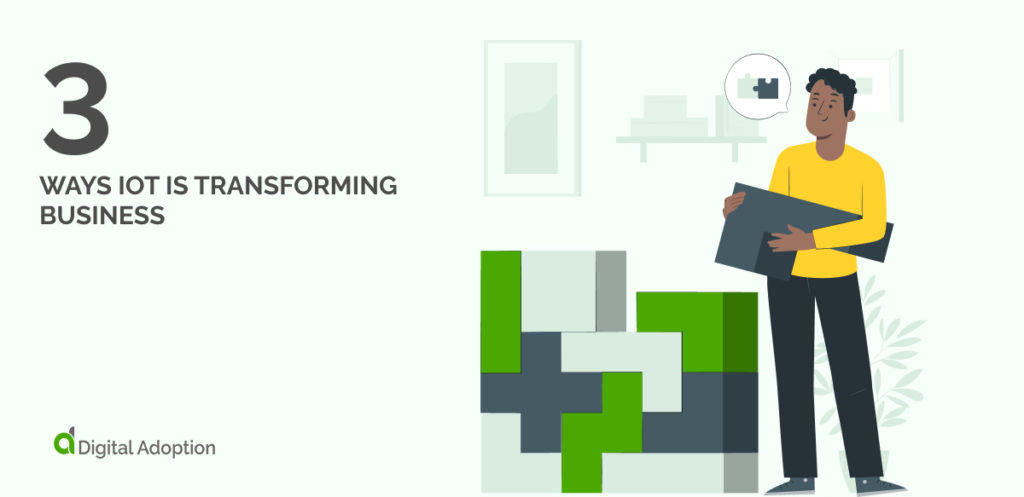
The IoT is transforming businesses across industries as they adopt IoT technologies to improve decision-making, enhance customer experiences, increase efficiency and productivity, and save costs.
- IoT devices generate large volumes of data that can be collected and analyzed to provide valuable insights into business operations. This data can be used to make better decisions about optimizing processes and improving customer experiences.
- IoT can also be used to automate tasks and processes. This can free employees to focus on more strategic tasks, resulting in increased efficiency and productivity.
- IoT-enabled businesses can save money by reducing waste, increasing asset utilization, and improving energy efficiency.
3 Benefits of Adopting IoT Technology
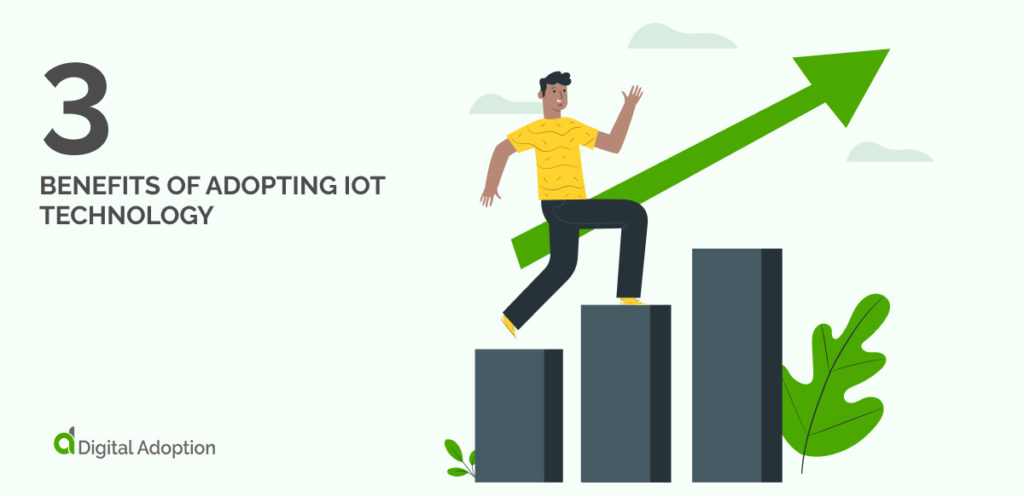
The IoT is transforming businesses across industries as they adopt IoT technologies to improve decision-making, enhance customer experiences, increase efficiency and productivity, and save costs.
- IoT devices generate large volumes of data that can be collected and analyzed to provide valuable insights into business operations. This data can be used to make better decisions about optimizing processes and improving customer experiences.
- IoT can also be used to automate tasks and processes. This can free employees to focus on more strategic tasks, resulting in increased efficiency and productivity. Finally, IoT-enabled businesses can save money by reducing waste, increasing asset utilization, and improving energy efficiency.
- Digital transformation is essential for businesses that want to stay competitive in today’s market. IoT can play a major role in this transformation by helping companies to collect and analyze data, optimize their operations, and improve customer experiences.
The Future Of IoT
The IoT profoundly impacts the digital landscape; this is only the beginning. IoT will evolve and become more sophisticated as businesses increasingly adopt IoT technologies to stay competitive.
IoT devices will generate even more data as they become more ubiquitous and sophisticated. This data will provide even more insights into business operations, allowing businesses to optimize their processes and improve customer experiences.
IoT will also continue to be used to automate tasks and processes. This will result in even more efficiency gains for businesses as employees are freed up to focus on higher-level tasks. Additionally, IoT-enabled companies will continue to save money through reduced waste, increased asset utilization, and improved energy efficiency.

